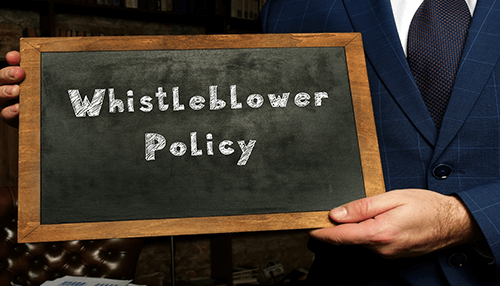As soon as you find out about fraudulent activity happening in your workplace that higher authorities may need to know, a dilemma could quickly set in.
What’s the right thing to do? Are you to speak or to keep quiet? If you keep quiet, it’s normal that you might feel as if you’re an accomplice in the crime committed! But are you really an accessory? To a certain extent, yes. For the most part, you’re supposed to take action as soon as you become aware of what’s going on.
This obligation, however, does require you to still read the room and move with caution. Understand thoroughly what’s on the line before you move and try to find out what can protect you against any potential drawback of whistleblowing.
To better prepare you and give you a balanced preview of what you might expect after you blow the whistle, this article will go through the pros and cons of internal whistleblowing:
Pros
Before you make a move, even if you plan on hiring the top employment lawyers in Los Angeles (which is a great idea, by the way), perhaps you need some reminding on why you’re doing it and why you should move along with it. Here are some top advantages of internal whistleblowing that you might want to know of:
1. It’s The Right Thing To Do
Sounds obvious but if you’re nervous or in any way unsure of whether or not you’re about to do the right thing, know that you are! And the fact that you’re committed enough to do this in-depth research is a good reflection of your integrity.
When you report leaks in your organization’s system, it’s often made complicated by the fact that you know and probably have some sort of a relationship with the person you’re reporting. But think of the fraud’s impact and how many people are potentially being affected. This might help give you some perspective and make you bolder as you take your case to the organization’s hierarchy.
2. There Is Protection Available Against Retaliation
The law already has provisions such as the one wherein you might have to encourage people to come forward with information through the False Claims Act. Under this act, even if your superior might not like the route you’d have taken, they are prohibited by law from singling you out for revenge or acts that look like they are targeting you because you raised an issue against them.
That way, whistleblowing doesn’t have to mean the end of your career in general or your current job, specifically.
3. There Is A Possibility For Financial Reward
Although this isn’t guaranteed, it’s still possible that you could get a financial reward for your trouble. Depending on your organization’s constitution, after your employer or someone in charge has investigated and gathered evidence as well as recovered lost funds (or simply plugged a leak that would have continued to lose them a lot of money), they might award you a percentage of what they will have recovered.
Cons
However, it’s not all roses. Here are some things you need to be careful about and seek protection against where necessary:
4. Your Career Could Take A Blow
Yes, that’s a hard one, but you should walk into this with your eyes wide open.
If you decide to take your case up against a superior and become public, your reputation might suffer a bit of stain. Being known as a whistleblower isn’t exactly something you want to be attached to your name in the business world, as it could easily hurt the chances of you getting employed elsewhere.
So it’s really up to your discretion, and you should always be weighing what you stand to lose versus what is going wrong. In some cases, you need to do something despite the risk. Yet sometimes, standing down or looking for better timing could be the way to go.
Another thing to consider is the reputation and integrity of your organization’s human resources (HR) department. Will they fix the thing in question? Does their track record speak in their favor? Sometimes, you might just take the professional hit without actually getting anything fixed, so you have to at least have some reference points.
5. Your At-Work Relationships Might Take A Hit
After you have reported your issue, you might expect some relationships within the workplace to turn sour. Some of your colleagues might want to distance themselves from you for a bit if they are concerned associating with you might have them perceived as being part of your’ plan’.
Although this tension will likely die down with time, it’s certainly uncomfortable while it lasts.
Conclusion
Deciding to take up a case against a fellow employee, especially if they are your superior, can be tricky, if not quite intimidating.
Knowing what to expect, what you stand to gain, and what you might need to protect yourself against is vital before starting your case.



